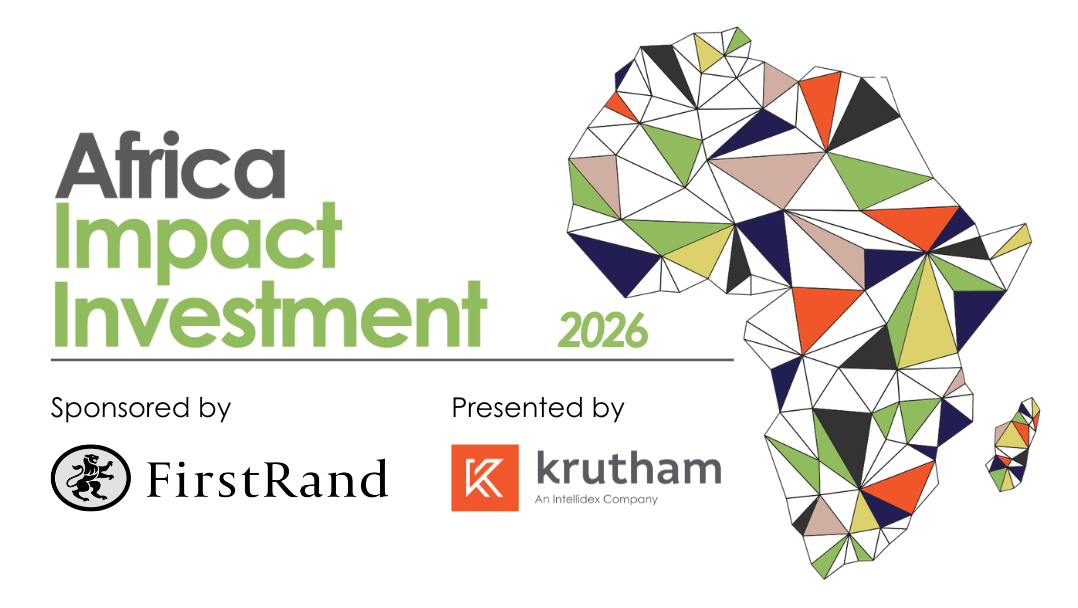This award recognises nominees that did not win in their respective categories but are contributing materially to the development of the impact investing market.
XSML Capital
Background
XSML Capital partners entrepreneurs in frontier markets in Africa to drive growth. It provides expertise, networks and bespoke financing, geared to nurture local talent. African entrepreneurs struggle to access affordable growth capital and this often prevents them from scaling their businesses and holds back the continent’s economic development.
Since 2010, XSML (eXtra, Small, Medium, Large) has been investing in SMEs in challenging markets. It has invested in more than 70 enterprises and covered assets of $159m. Its investment teams in Angola, DRC and Uganda help to grow small businesses to become medium and large enterprises by providing tailored financing and expertise. In these markets, it is often the only investor that focuses on companies across sectors needing investments from ranging from $300,00 to R10m.
XSML builds extensive market knowledge, scouts out the best opportunities and stays close to its investments. This generates attractive returns for its investors, who are leading development banks and dedicated impact investors. XSML provides debt, equity and mezzanine finance, enabling it to customise its financing. It maintains strict ESG standards and has a focus on gender equality.
Originality of design/meeting unfilled needs
XSML Capital intends to scale small businesses towards medium and large enterprises in challenging markets by providing tailored financing and expertise. It provides mezzanine financing to its SME clients which is well suited for SMEs in Africa because it allows for better downside risk protection than private equity, while achieving attractive risk-adjusted returns.
Theory of change
| Context | Inputs | Outputs | Outcomes | Impact |
| Challenges:
• Lack of growth capital • Lack of knowledge and skills • Limited (inter) national networks. • Limited infrastructure |
SME partnerships:
• Investments (growth capital) • Mentoring • Networks & people • Technical assistance |
Empowered SMEs:
• Better products and services • SME revenue growth • Job creation • Embedded ESG practices |
Strong economies:
• Sustainable private sector development • More efficient value chains • Increased tax generation • Gender equality |
Inclusive growth:
• SDG 8: Decent work & economic growth • SDG 10: Reduced inequalities |
Impact thesis
XSML Capital combines best practices, standardised tools and indicators and collects feedback from investors in designing its impact management and monitoring strategy. SME entrepreneurs in Africa face a range of challenges, the key ones being lack of access to growth capital as well as to knowledge and networks. This prevents them from scaling their business, creating jobs and contributing to inclusive, sustainable developments in their markets.
XSML provides mezzanine financing to its SME clients. This type of financing is well suited for SMEs in Africa, because it allows for better downside risk protection than private equity, while achieving attractive risk-adjusted returns.
XSML offers mostly flexible debt and self-liquidating instruments in US dollar or equivalent against interest rates in line with local banks. It offers grace periods on interest and principal, with tenures of between four and seven years.
SDG linkages





XSML Capital targets SDG 8 (decent work and economic growth) and SDG 10 (reduced inequalities), while SDG 5 (gender equality), SDG 13 (climate action) and SDG 17 (partnerships for the global goals) are its cross-cutting SDGs that serve as a lens for any investment. On climate change, the organisation works to reduce the footprint of XSML itself and supports portfolio companies to follow suit (SDG 13). XSML Capital also measures SDG 17 (partnerships for the goals) as the company focuses on building the ecosystem for its portfolio companies with the support of partners.
Impact
In measuring its outcomes and impact, XSML Capital aligns its data collection and indicators to leading international standards. XSML Capital core indicators include:
- The number of decent jobs supporters.
- The number of decent jobs created.
- Tax revenue generators.
XSML Capital is currently testing the joint impact model that helps calculate the number of indirect jobs sustained through its investments.
It addresses the gap in financing, providing expertise, networks and bespoke financing in frontier markets geared to nurturing local talent and fostering SME growth to drive economic development and contribute to inclusive economic growth and reduced inequalities.
XSML Capital currently doesn’t track environmental outcomes as it invests across sectors.
Financial performance
During the past 12 years the company has built a strong track record, raising three funds that have invested in more than 70 companies. It achieved a 17.4% blended internal rate of return on fully exited investments, and Fund I (Central Africa SME Fund) achieved a multiple on invested capital of 1.4 times, returning capital to its investors during the investment period.
Potential for replicability
XSML Capital continues to expand and execute successful investments in new markets. It emphasises that stakeholders have duplicated their business model in other markets.
XSML focuses on small and medium-sized businesses, and it is sector agnostic. However, its business model can be taken across geographies and is also applicable to more thematic sectors.
Click here to download the case studyShare
This research report was issued by Krutham South Africa Pty Ltd.
Krutham aims to deliver impartial and objective assessments of securities, companies or other subjects. This document is issued for information purposes only and is not an offer to purchase or sell investments or related financial instruments. Individuals should undertake their own analysis and/or seek professional advice based on their specific needs before purchasing or selling investments.
The information contained in this report is based on sources that Krutham believes to be reliable, but Krutham makes no representations or warranties regarding the completeness, accuracy or reliability of any information, facts, estimates, forecasts or opinions contained in this document. The information and opinions could change at any time without prior notice. Krutham is under no obligation to inform any recipient of this document of any such changes.
No part of this report should be considered as a credit rating or ratings product, nor as ratings advice.
Krutham does not provide ratings on any sovereign or corporate entity for any client.
Krutham, its directors, officers, staff, agents or associates shall have no liability for any loss or damage of any nature arising from the use of this document.
Disclosure
The opinions or recommendations contained in this report represent the true views of the analyst(s) responsible for preparing the report. The analyst’s remuneration is not affected by the opinions or recommendations contained in this report, although his/her remuneration may be affected by the overall quality of their research, feedback from clients and the financial performance of Krutham group entities.
Krutham staff may hold positions in financial instruments or derivatives thereof which are discussed in this document. Trades by staff are subject to Krutham’s code of conduct which can be obtained by emailing mail@krutham.com.
Krutham may have, or be seeking to have, a consulting or other professional relationship with the companies, sovereigns or individuals mentioned in this report. A copy of Krutham’s conflicts of interest policy is available on request by emailing mail@krutham.com. Relevant specific conflicts of interest will be listed here if they exist.
- Krutham provides independent advice and independent research to a wide range of investors and financial institutions on Eskom, Denel, Transnet, Land Bank and SAA. Krutham’s interactions with all clients on Eskom, Denel, Transnet, Land Bank and SAA may include business confidential information but does not include MNPI and so does not provide a conflict. Krutham does not ‘act’ or ‘advocate’ for or ‘represent’ any of these clients. Krutham has regular interactions with government, Eskom, Denel, Transnet, Land Bank, SAA and other related entities connected with the SOE situation but does not provide paid consulting services or paid advice to any of these entities. These interactions are governed by Krutham’s own conflicts of interest policy as well as secrecy rules of the respective institutions or state-owned companies.
- Krutham provides a range of services into ‘organised business’ groupings in South Africa, which includes independent bespoke research and advice. Krutham is compensated for these services. Krutham does not ‘act for’ or ‘advocate’ for or ‘represent’ any of these clients.
- Krutham is currently involved in policy design work on a number of government priorities.
Copyright © 2023. All rights reserved. This document is copyrighted to Krutham South Africa Pty Ltd.
This report is only intended for the direct recipient of this report from a Krutham group company employee and may not be distributed in any form without prior permission. Prior written permission must be obtained before using the content of this report in other forms including for media, commercial or non-commercial benefit.

